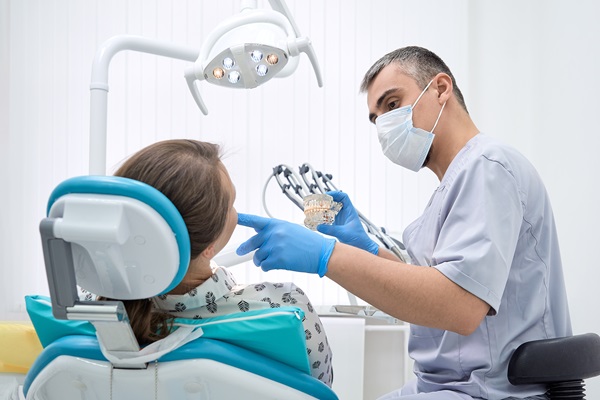Proper oral hygiene is an often-overlooked but important part of a person's dental health, as well as overall health. In general dentistry, routine dental exams are a crucial aspect of oral healthcare that maintains healthy teeth. However, there are many myths surrounding exams.
Common myths regarding dental exams
The following are three of the most common myths about dental exams, as well as the truth behind them.
1. Visits are only for dental issues
Many people believe that visits to a dentist are reserved for when there is a problem. This belief, however, is false and can be detrimental to a patient's health. In general dentistry, routine dental exams need to be done twice a year. These exams are used to clean the teeth and gums and check for any possible dental problems. If there are issues, such as cavities, a dentist can catch them early and often before the patient realizes there is a problem. Some dental conditions, such as gum disease, are important to treat as soon as possible to prevent further damage to the teeth and gums. Prevention of serious dental problems can help patients maintain good oral health.
2. Young children do not need exams
Another common myth about general dentistry is that children do not need to have regular dental exams done because the health of their baby teeth is irrelevant. However, children need to visit the dentist by the time they reach their first birthday. This first visit is crucial to helping children understand dentist visits and to get into a routine of regular visits.
By the time a child is two, the usual recommendation of exams every six months applies. Dental exams are just as important for a child's baby teeth as an adult's permanent teeth. Children need to understand proper oral hygiene to avoid cavities and dental problems and help them maintain this standard of care when they have permanent teeth; this can help to avoid complications later in life. Some dental issues that cause problems for baby teeth can also result in detrimental effects to the permanent teeth when they eventually erupt.
3. X-rays are optional
There are some people who believe the myth that X-rays are not a necessary component of dental care. In fact, such imaging is an important part of routine dental exams and should always be done at least once every year or two, even for patients with healthy teeth and gums. X-rays are able to catch potentially serious dental problems that may not be visible on the surface during a routine exam, allowing for treatment to stop any further issues from developing.
Conclusion
When it comes to general dentistry, patients always need to have routine dental exams done every six months. Contrary to some common myths, dental exams are vitally important to maintain proper oral health, as well as to catch any dental problems as they occur and prevent more serious complications from developing.
Request an appointment here: https://www.elitedentistrynky.com or call Elite Family & Cosmetic Dentistry at (859) 384-2999 for an appointment in our Florence office.
Check out what others are saying about our dental services on Yelp: General Dentist in Florence, KY.
Related Posts
The Importance of Regular General Dentistry Visits
Regular general dentistry visits are necessary for a number of reasons, however, it ultimately comes down to oral health maintenance and preventive care, both of which can only be done in a …
Oral Hygiene Tips from a General Dentist
After each routine visit to your general dentist, you may receive a few tips or recommendations from your dentist to continue to maintain or boost your oral health. Although these tips vary …
Restoring Oral Health and Esthetics Through a Full Mouth Reconstruction
Considering undergoing a full mouth reconstruction in order to improve the health of your mouth? Restoring one’s oral health not only allows have one to experience a healthy mouth, it also allows …
A Guide to Getting a Cleaning from a General Dentist
Routine dental cleaning from a general dentist is a necessity, not a luxury. Plaque and tartar will wreak havoc on the teeth and gums if allowed to remain in the mouth for …







